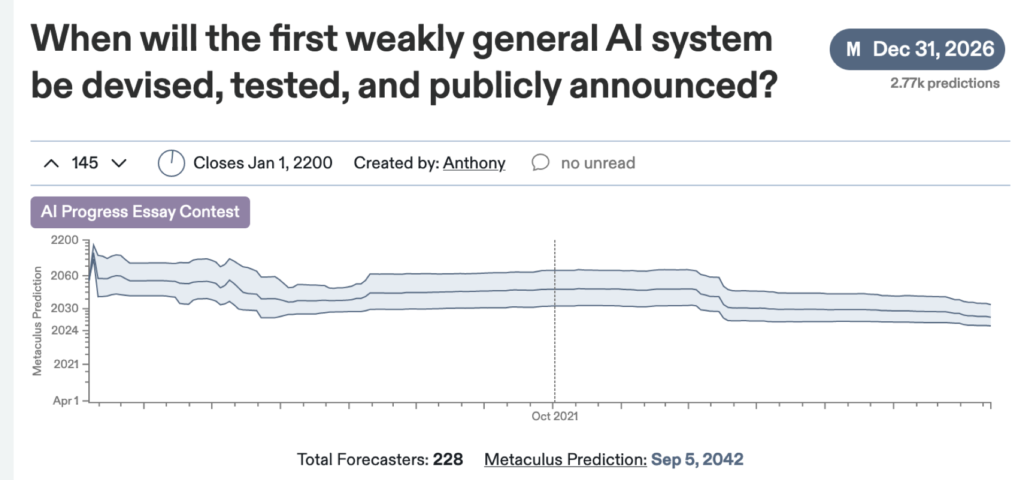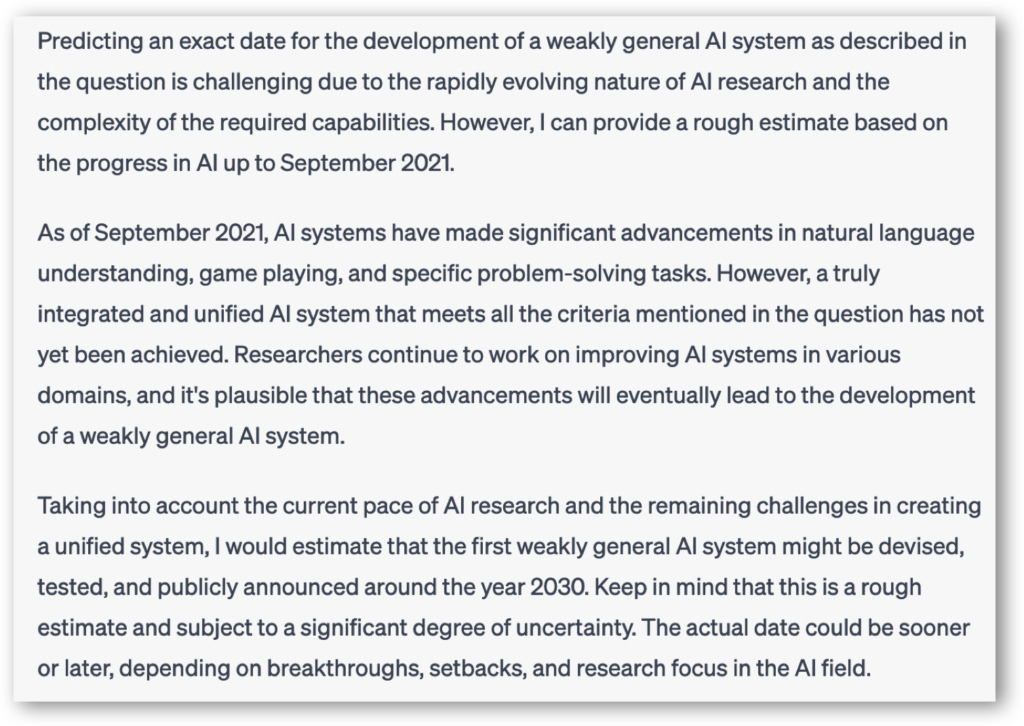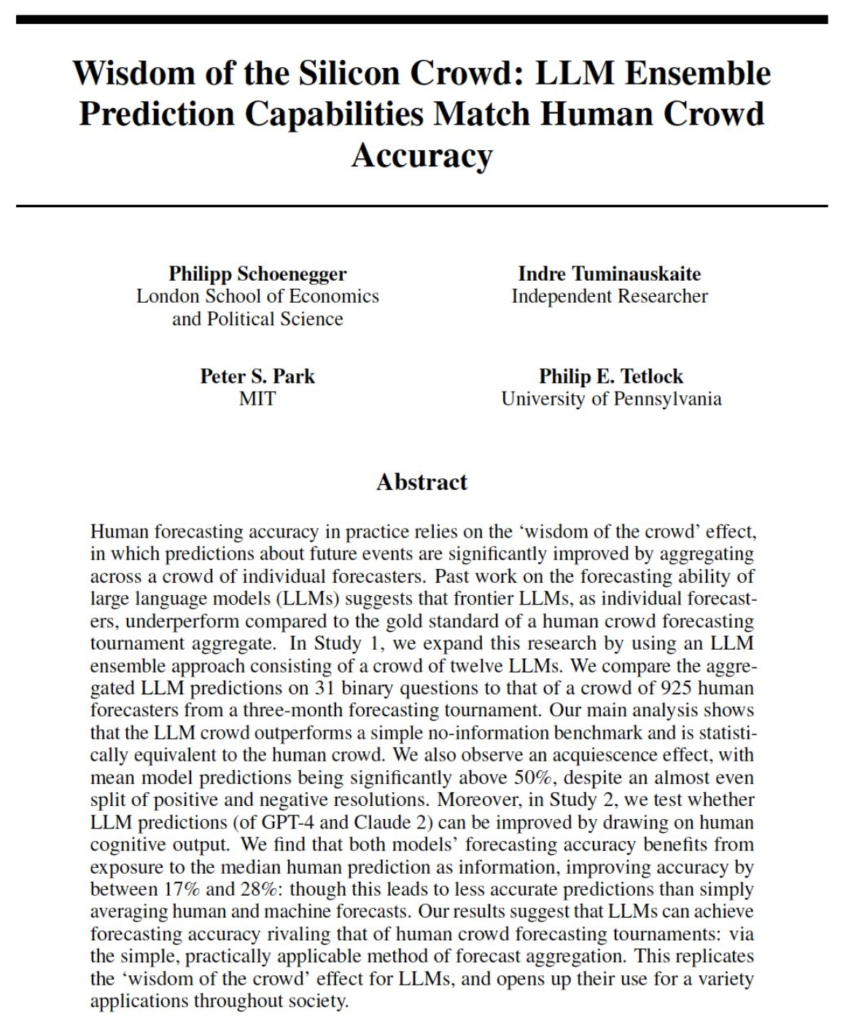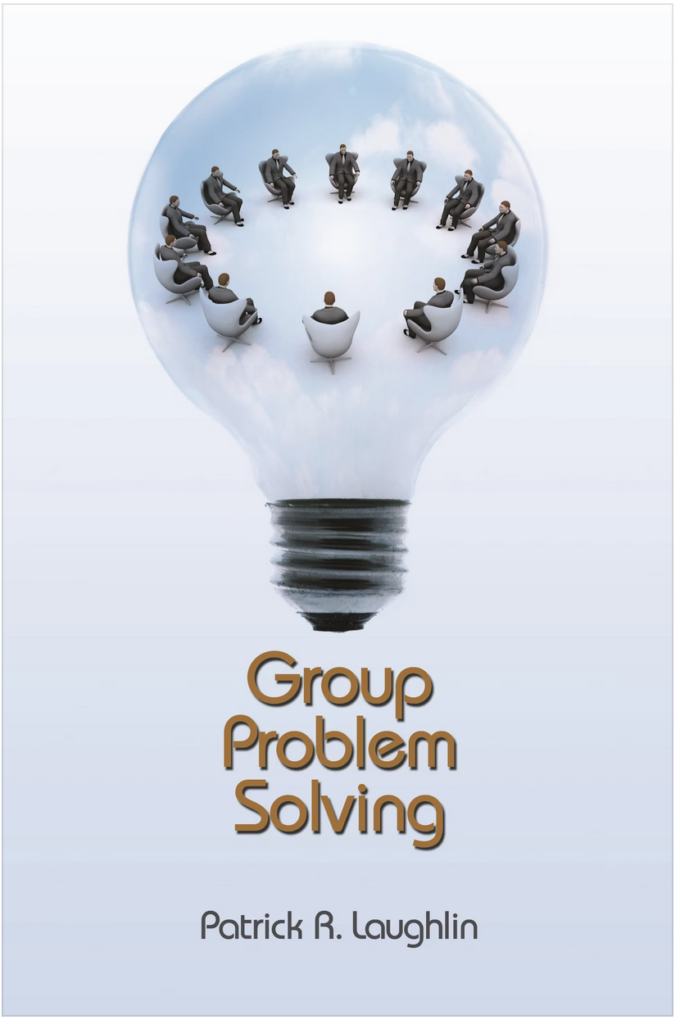Prompt: Mid-century modern, tilt shift, Eero Saarinen style, Bell Labs feel, black-and-white, a panel of AI “experts” who are the logical conclusion of Rosenblatt’s 1958 perceptron paper.
DALL-E:

There’s a song dating from the dawn of the iPod era, A Panel of Experts from Solvent, that has spent more than two decades at the top or near the top of the playlist. A confection of pure analog synth perfection; it never goes stale.
There are, in fact, two versions of the song, the version linked above, as well as a remix by Lowfish. Listening first to the latter and then to the former is an analog that perfectly synthesizes the step from GPT-3 Davinci up to Chat GPT-4. A definitive version so well realized that it’s an argument to put a stop to further foundation models.
In order to convene a panel, one first needs experts. Last May, not long after ChatGPT-4 arrived on the scene, I asked it to predict on a long-running Metaculus question concerning the public arrival date of weakly general artificial intelligence.


In May 2023, GPT-4’s training data cutoff date was Sept. 2021. At that now receedingly distant moment, the aggregate of Metaculus forecasters was predicting that weak AGI would arrive on a far-off date in 2042:

Remarkably, however, equipped only with its 2021-vintage worldview, the GPT-4 language model, after some ritualistic hemming and hawing, predicted a highly prescient weak AGI arrival date of 2030.

Woah. That jolted me to attention. A lucky guess? Perhaps. Over the last three years, the Metaculus crowd has rapidly shifted toward more imminent time frames. Currently, the crowd is predicting weak AGI arrival in October 2026. The future, effectively, has arrived.
And now with it, the panel. On arXiv recently, Phillip Schoenegger and several colleagues including Philip Tetlock published a study showing that an ensemble of currently competitive language models, GPT-4, Claude 2 et al, perform equivalently to the human crowd when gauged using participation in a Metaculus forecasting competition.

My father, Patrick R. Laughlin, spent his academic career as a social psychologist studying the dynamics of group decision making. I wish that he’d made it to this moment, where suddenly the dynamics of those groups have been suddenly and dramatically expanded.

